
Toothache can overtake a person at any time, and it is not always possible to immediately consult a dentist. In such cases, an anesthetic pill will be a quick and effective way to get rid of unpleasant sensations. However, use them with caution - all drugs have a certain degree of toxicity and have contraindications for use.
- Analgin( Barralgin M)
- Acetylsalicylic acid( Aspirin, Accecardol, Trombo ACC)
- Dexalgin
- Diclofenac( Voltaren, Naklofen, Orthofen)
- Ketanov( Dolak, Ketokam, Ketorol, Ketorolac, Ketofril)
- Ketonal( Arthrosylen, Bostrumcaps, Flexen)
- Nimesil( Nyz, Nemulex, Nimid, Nimulide, Nimesulid, Nimika, Flolid)
- Nurofen( Ibuprofen, Mig)
- Paracetamol( Panadol, Stremol, Efferalgan)
- Spazmalgon( Braal, Geomag, Spazgan, Spasmblock)
- Tempalgin
- Citramon P( Ascofen P, Co-fi-Plus,ksedrin)
- during pregnancy
- Children
- Causes pain
Analgin and its analogues are fairly inexpensive pills, so very popular. However, their basis - metamizol sodium - can cause blood disease agranulocytosis, so in many countries these drugs are prohibited.
Analgin( Baralgin M)
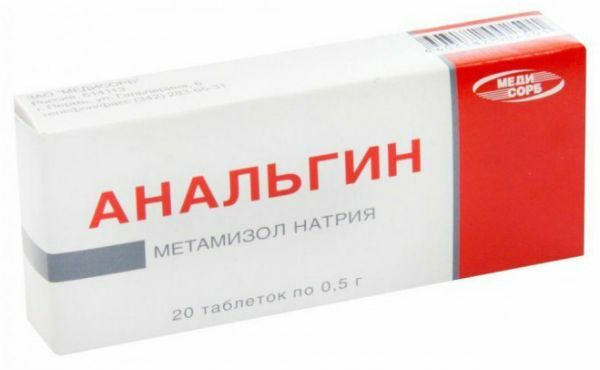
The active substance is metamizole sodium. The form of release - tablets, suppositories rectal, a solution for injections. Adults take 250-500 milligrams 2-3 times a day, children - 50-300 milligrams 2-3 times a day, depending on the age.
In addition to analgesic, it also has antipyretic and small anti-inflammatory activity. Used for mild to moderate dental pain.
Acetylsalicylic acid( Aspirin, Acecardol, Trombo ACC)
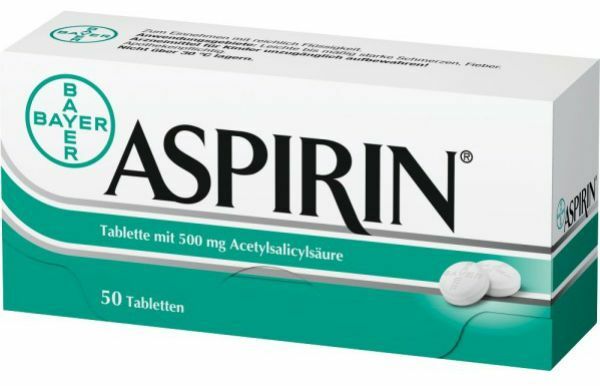
Active ingredient is acetylsalicylic acid. Produced in the form of tablets for oral administration and effervescent tablets for dissolution in water and oral administration. Dosage is selected individually, but should not exceed 1 gram at a time and 3 grams per day.
The drug has antipyretic and anti-inflammatory effects, as well as weaker analgesics than other analgesics.
Dexalgin
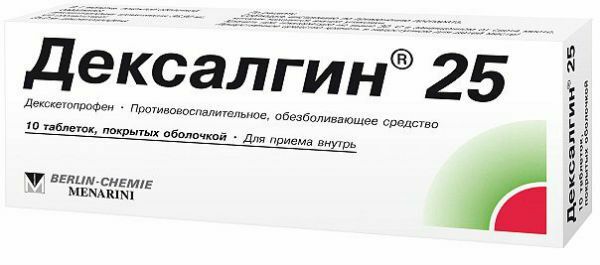
The active ingredient is dexketoprofen trometamol. Form release - a tablet of 25 milligrams and a solution for injection. Take 0.5 tablets 1-6 times a day every 4-6 hours or 1 tablet up to 3 times a day with intervals between meals at least 8 hours.
Is an anti-inflammatory, analgesic and antipyretic. It is able to eliminate pain syndrome of mild and moderate intensity.
Diclofenac( Voltaren, Naklofen, Orthofen)
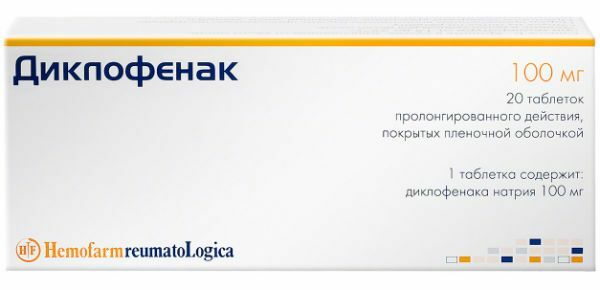
The active ingredient is diclofenac sodium. Produced in the form of tablets, rectal suppositories, ointments, gels, injectable solutions. Adults and children over 15 take 25-50 milligrams( 1-2 tablets) 2-3 times a day. The daily dose for children older than 6 years should not exceed 2 milligrams per kilogram of weight, divided by 2-3 reception.
The drug is considered to be an anti-inflammatory, analgesic and antipyretic agent. Is able to cure pain syndrome of mild or moderate severity.
Ketanov( Dolak, Ketokam, Ketorol, Ketorolac, Ketofril)
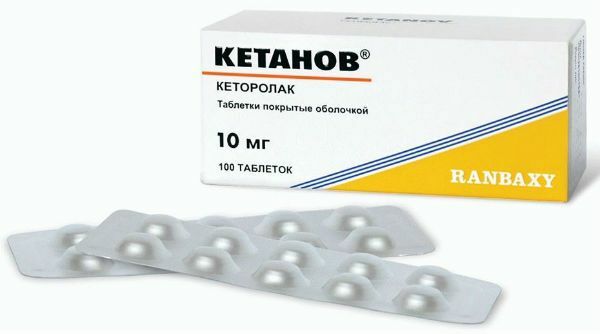
Active substance - ketorolac. Available in tablets and injectable solutions. Take 10 milligrams( 1 tablet) every 4-6 hours, if necessary - 20 milligrams 3-4 times a day.
It is considered a very strong preparation, which allows to eliminate toothache of any severity. It also has anti-inflammatory and antipyretic activity. The effect lasts up to 8 hours.
Ketonal( Arthrosylen, Bostrumcaps, Flexenc)
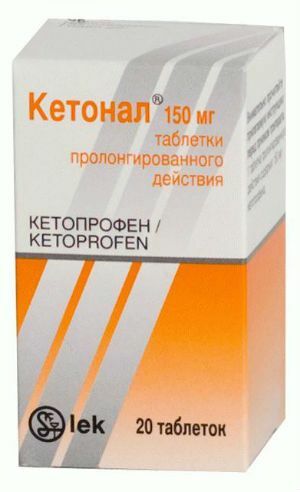
The active ingredient is ketoprofen. It is produced in capsules and tablets of 50, 100, 150 and 200 milligrams. Take 50-100 milligrams 2-3 times a day or 200 milligrams 1 time per day with meals, with a liquid( at least 100 milliliters of water or milk).
In addition to analgesic, it has anti-inflammatory and antipyretic activity. It is often used as a remedy for headache, rather than for toothache.
Nimesil( Naise, Nemux, Nimid, Nimulide, Nimesulid, Nimika, Flolid)
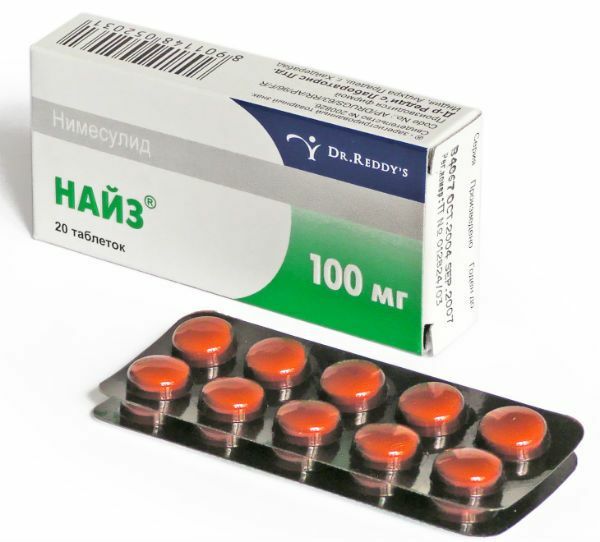
The active substance is nimesulide. Produced in tablets of 50 and 100 milligrams and in pellets for the preparation of a suspension for oral administration( in each bag of powder 50 or 100 milligrams of active substance).Adults take 100-200 milligrams 2 times a day, children - 1.5 milligrams per kilogram of weight 2-3 times a day.
Has a slightly larger anti-inflammatory effect than preparations based on ibuprofen, but the analgesic effect is less pronounced. When pulpitis or periodontitis greatly alleviates the condition, but is not able to completely stop the pain.
Nurofen( Ibuprofen, Mig)
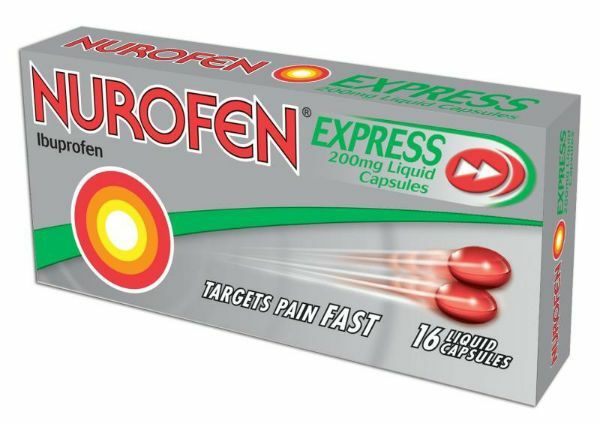
The active ingredient is ibuprofen. Form release - tablets and capsules for oral administration of 200 and 400 milligrams, effervescent tablets for solution, rectal supplements, syrup for children, gel for external application. Adults take 200 milligrams 3-4 times a day. To achieve maximum effect, the dose can be doubled. Dosage for children is calculated according to age and weight.
In addition to the ability to remove a strong enough toothache, it has antipyretic effect. The effect of the drug is observed up to 7-8 hours.
Paracetamol( Panadol, Stremol, Efferalgan)
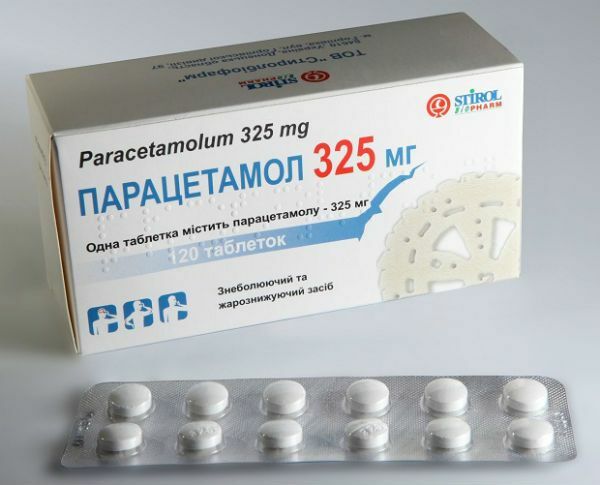
The active ingredient is paracetamol. Form release - tablets, rectal suppositories, syrup for children. Adults and children weighing more than 50 kilograms take 325-500 milligrams to 4 times a day. For other children, a single dose is calculated according to age and weight and is from 15 to 250 milligrams, taken 3-4 times a day, no more often than 1 time in 4 hours and not longer than 3 days.
Has analgesic, pronounced antipyretic and weak anti-inflammatory effect. Can relieve moderate toothache.
Spazmalgon( Braal, Geomag, Spazgan, Spazmoblok)
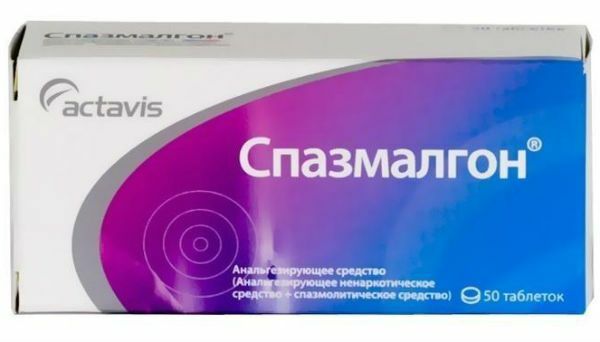
Active ingredients - metamizole sodium, pituopenone hydrochloride, fenpiperinium bromide. Produced in tablets. Adults and children over 15 years of age take 1-2 tablets 2-3 times a day, but not more than 6 tablets per day. Children 6-15 years - 0.5-1 tablet 2-3 times a day. The course should not exceed 5 days.
Has analgesic, antipyretic, mild anti-inflammatory and sedative activities. Effective with mild to moderate dental pain.
Tempalgin
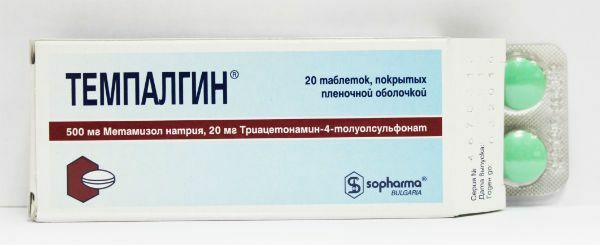
Active ingredients are metamizole sodium and tempidone( triacetonamine 4-toluenesulfonate).The form of the release is a tablet of 500/20 milligrams. Take 1 tablet 2-3 times a day, if necessary, you can double the dose, but not more than 6 tablets per day. The course should not exceed 5 days.
Has analgesic, antipyretic, mild anti-inflammatory and sedative activities. Effective with mild to moderate dental pain.
Citramon P( Ascofen P, Cofitsil-plus, Eksedrin)
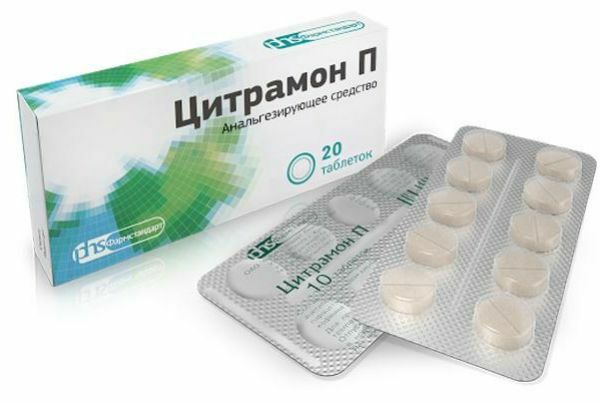
Active ingredients - acetylsalicylic acid, caffeine, paracetamol. Produced in tablets. Adults and children over 14 years of age take 1-2 tablets once every 6-8 hours, the maximum daily dose is 6 tablets.
Helps with a mild symptom of pain.
In pregnancy
The safest drug for the treatment of toothache during pregnancy is Paracetamol and its analogues. In some cases, the doctor may allow the use of Aspirin or Nurofen .However, do not delay the treatment of teeth in this period - there are many modern painkillers, the use of which will make the procedure comfortable and safe for the mother and child.
For children
To alleviate toothache and ease the condition of the child before going to the dentist, one of the facilities for children can be used. These can be preparations of paracetamol or ibuprofen( for example, Bofen, Nurofen for children, Panadol for children).Depending on the age, use forms such as syrup, rectal suppositories or tablets.
Babies who have hard teeth eruptions are often prescribed local remedies - drops, gels and ointments for lubricating the gums( Dentinox, Dentinorm baby, Calgel, Kamistad, Traumeel C, Holilsal ).
to contents ^Causes of pain
- Caries - damage to tooth enamel and dentin with the formation of a carious cavity in them, where pathogenic microorganisms multiply. Pain symptoms usually occur after eating( especially cold, sour or sweet) and last 2-5 minutes. With deep caries, throbbing pain can occur in the evenings and at night.
- Pulpitis - a complication of caries, in which the lesion extends to the pulp( soft tissue inside the tooth, in which there are arteries and nerves).In this case, the pain is sufficiently strong and constant, can acquire a aching or pulsating nature, often accompanied by an increase in body temperature.
- Flux ( periostitis) is a dangerous complication of caries or pulpitis, in which an infectious inflammatory process affects the periosteum or jaw bone. In addition to intense pain, swelling and reddening of the gums accompanied by swelling of the corresponding half of the face, an increase in submandibular lymph nodes, is accompanied.
- The increased sensitivity of teeth - is manifested by pain when exposed to teeth cold or hot, acidic or sweet, too solid food. It can occur for several reasons: exposing the sensitive dentin in the neck of the tooth, a violation in the body of the exchange of minerals, diseases of the nervous or endocrine systems.
- Errors in the dental treatment of - the causes of severe pain after tooth filling may be incomplete cleansing of the tooth canals, omissions in eliminating the focus of infection, poor quality of the seal materials.
- Extraction of the tooth - in this case, pain for 1-2 days( when cutting the gums - up to 1 week) are considered normal. If the pain does not last long, it can be associated with such factors as dryness of the socket, not completely removed fragments of the tooth, the presence of gum disease( gingivitis, periodontitis), allergy to anesthetic drugs.
- Pain under the crown - is usually associated with poor-quality dental filling. Can be very strong or manifest only when the tooth is pressed. Often accompanied by an increase in body temperature, flux, the formation of purulent cones on the gum( fistula).
- Cracks of tooth enamel - usually show themselves painful sensations when eating, when the food is cold, hot, sour or sweet.
- Teeth injuries - these include bruising, dislocation and fracture of the tooth. Depending on the severity of the trauma can go on independently or lead to a shift or tooth loss.
- Growth and difficult eruption of wisdom tooth( pericoronitis) - usually accompanied by swelling and inflammation of the gums. However, do not wait until the tooth is cut and the pain passes, the process can have negative consequences.
Toothache is most often associated with an inflammatory process caused by pathogenic microbes. With the help of tablets, you can only temporarily get rid of the symptoms, without eliminating the cause of the pathology. Therefore, do not postpone visiting a doctor, otherwise the destructive process will continue and lead to tooth loss.
